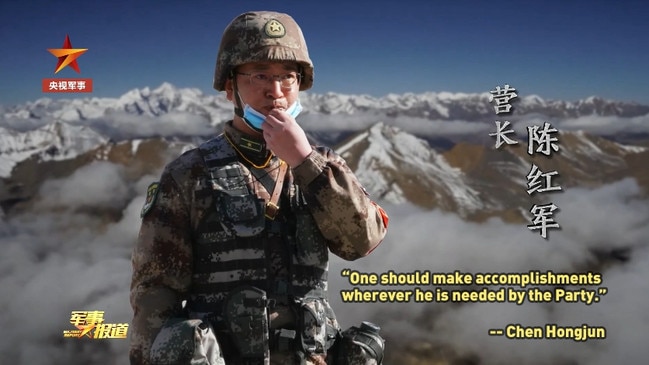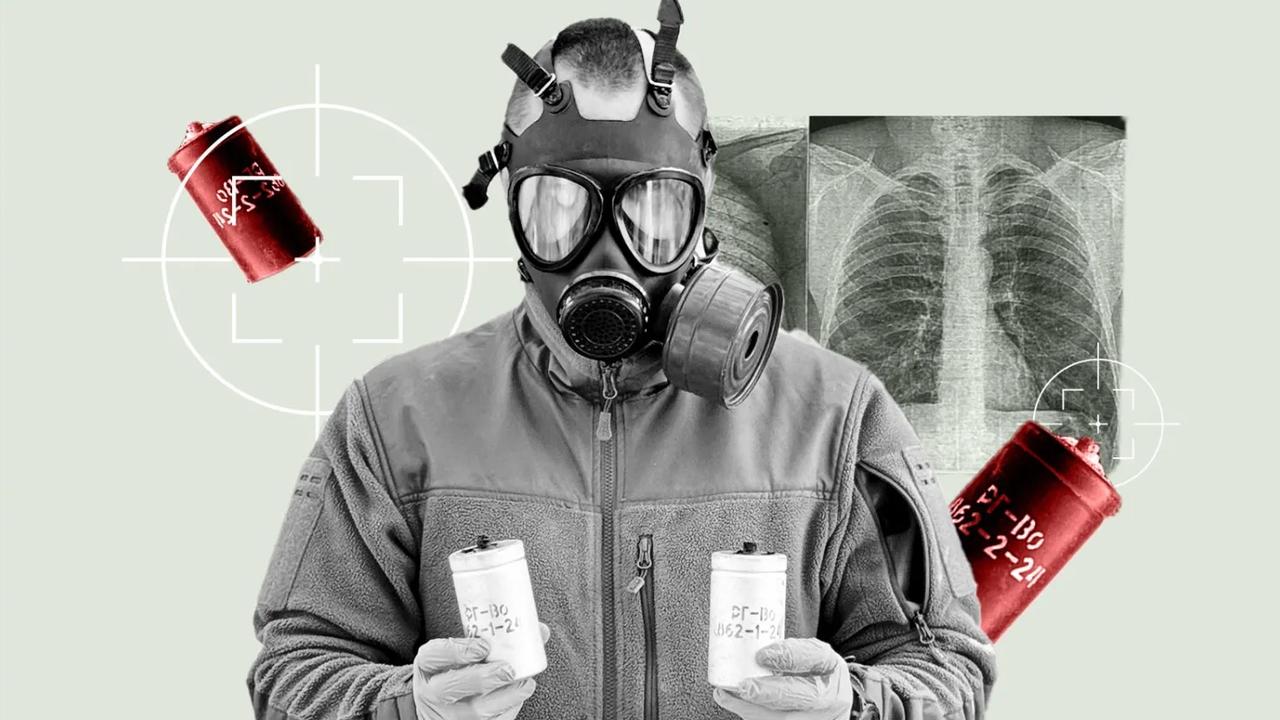‘They died for us’: China grieves soldiers killed in clash with India
India and China’s armies have completed their disengagement at a flashpoint on their disputed border.

China’s internet has erupted with grief for four People’s Liberation Soldiers who were killed in a bloody clash with Indian troops on their two giant neighbours’ disputed border.
Hundreds of millions of Chinese internet users viewed the hashtag “They died for us” across the country’s social media channels after China’s Defence Ministry revealed the names of the four soldiers more than 8 months after they were killed.
The outpouring came as President Xi Jinping over the weekend announced a new campaign to study the history of the Chinese Communist Party ahead of the 100th anniversary of its founding in July.
“Comrades of the whole party should learn from history, be honest, respect and practice history, learn party history, realize ideas, do practical things, and open new opportunities, so as to start a new journey of building a socialist modern country,” said Mr Xi in a speech in Beijing reported by state media.
As nationalist emotion swept the Chinese internet, the Indian and Chinese militaries met for their 10th round of border talks.
In a promising sign of the de-escalation of standoff between the two nuclear powers the two armies said in a joint statement they had “completed” the disengagement of forces at the contested Pangong Lake, one of the three main flashpoints in the longstanding dispute over their 3440km mountainous border.
The two sides said it was a “significant step forward” and indicated they would now focus on disengaging the thousands of troops at two other flashpoints, Gogra-Hot Springs and Depsang Plains.
India’s military has been far more open in releasing information about the conflict, last June confirming that 20 Indian soldiers had been killed in a night-time clash. They were the first deaths on the contested border since 1975.
New Delhi last week released footage of hundreds of Chinese and Indian tanks withdrawing from lands around the lake.
China’s Defence spokesman on Friday said the Indian side “bears full responsibility” for the death of the PLA soldiers, Chen Hongjun, 33, Xiao Siyuan, 24, Wang Zhuoran, 24 and Chen Xiangrong, 18. Their commanding officer Qi Fabao, 41, was also badly wounded in the club fight in the Galwan Valley.
The Central Military Commission — which is also chaired by CCP general secretary Xi — awarded the dead officers and soldiers the honorary titles of “Commander of the Heroes of Defending China‘s Border Forces” and “Hero of Defending China’s Border Forces”.
“The officers and soldiers reported publicly this time are steel soldiers who have been nurtured by Xi Jinping Thought on Socialism with Chinese Characteristics for a New Era and Xi Jinping Thought on Strengthening the Military,” China’s Defence spokesman said.
Reports of the four soldiers bravely — and patriotic extracts from their personal diaries and letters — have been widely reported in China.
“Chen Hongjun, Chen Xiangrong and Xiao Siyuan fought to the last minute and sacrificed their lives. Wang Zhuoran, a fellow soldier, also gave his life to rescue his comrades when crossing the river to support the others,” the Global Times reported.
The PLA also released an edited video of the clash in June — watched hundreds of millions of times — which shows chaotic scenes of hundreds of Indian and Chinese troops holding clubs and shields. Until last September, no shots had been fired along the 3500km border since 1975 when the two countries established mechanisms to resolve local clashes between soldiers and it is rare for either Indian or Chinese soldiers on the border to carry weapons in order to avoid escalating conflicts.
Many shared tributes to the late soldiers on social media.
A poem widely shared on the social media portal Weibo read: “Dusk arrives. Steamed rice in my bowl. Soft drink in my hand. Can’t fathom why sturdy soldiers die. I woke up in the middle of the night, started to realize: They died for me.”
At least three Chinese citizens were arrested for publishing defamatory comments about the dead soldiers.
Qiu Ziming, 38, was charged by the Nanjing Bureau of Public Security for “picking quarrels and provoking trouble”, a vague crime that carries a sentence of up to 10 years in prison.
The former reporter with the weekly Chinese newspaper Economic Observer suggested the commanding officer Qi survived the clashes because of his higher rank.
Qiu also suggested more Chinese soldiers might have been killed in the conflict than the four disclosed.
Chinese state media reported that on Sunday a 28-year-old man surnamed Chen was detained by Beijing police for a similar offence, while a 25-year-old man surnamed Yang was arrested in Sichuan province.
A Chinese law that took effect in 2018 makes it illegal to defame the country’s heroes and martyrs.




To join the conversation, please log in. Don't have an account? Register
Join the conversation, you are commenting as Logout